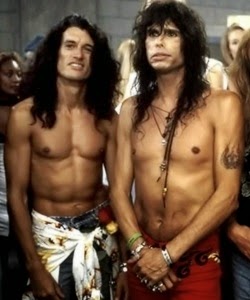The humans of Japan share their islands with hundreds of species of yokai, paranormal beings variously described as goblins, demons, and monsters.
Most yokai are indifferent to humans.
Like the gigantic terai oni, who stands upside down to wash his hands in rivers, and is only dangerous if he happens to step on you, or if you're caught in the stream when he takes out his giant penis to urinate.
Multiple-tentacled yokai are eager to invade every orifice of any woman or man who falls into their grasp.
Every orifice.
There's a whole genre of pornography, shokushu goukan, dedicated to depicting the disgust, pain, and pleasure of the victim.
Turtle-shelled kappa lurk by the riverside to grab swimmers and invade orifices of their own, in the process pulling their victims to their deaths.
They probably believe that humans can breathe underwater.
Shiri me look like people bent over, except for the gigantic eye in their buttocks. You think they're running away, but they're actually running toward you.
Some Japanese authors even make up their own yokai. GeGeGe no Kitaro, a manga and anime series by Shigeru Mizuki, stars Kitaro, a yokai boy, son of a living eyeball, who is working for peace between the yokai and human tribes.
A 2007 film adaptation starred Eiji Wentz, who is the subject of gay rumors.
See also: Gay Manga of Japan; Japanese Tentacle Porn















